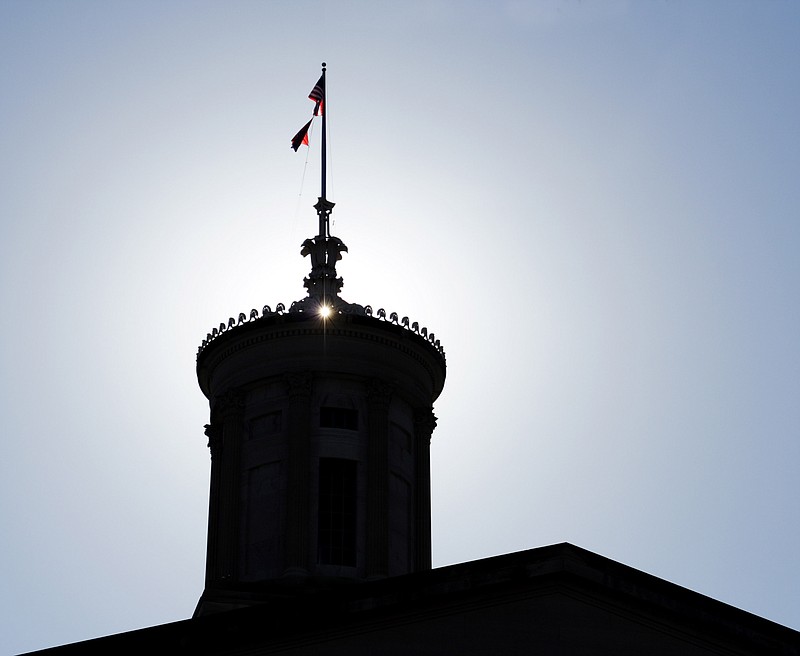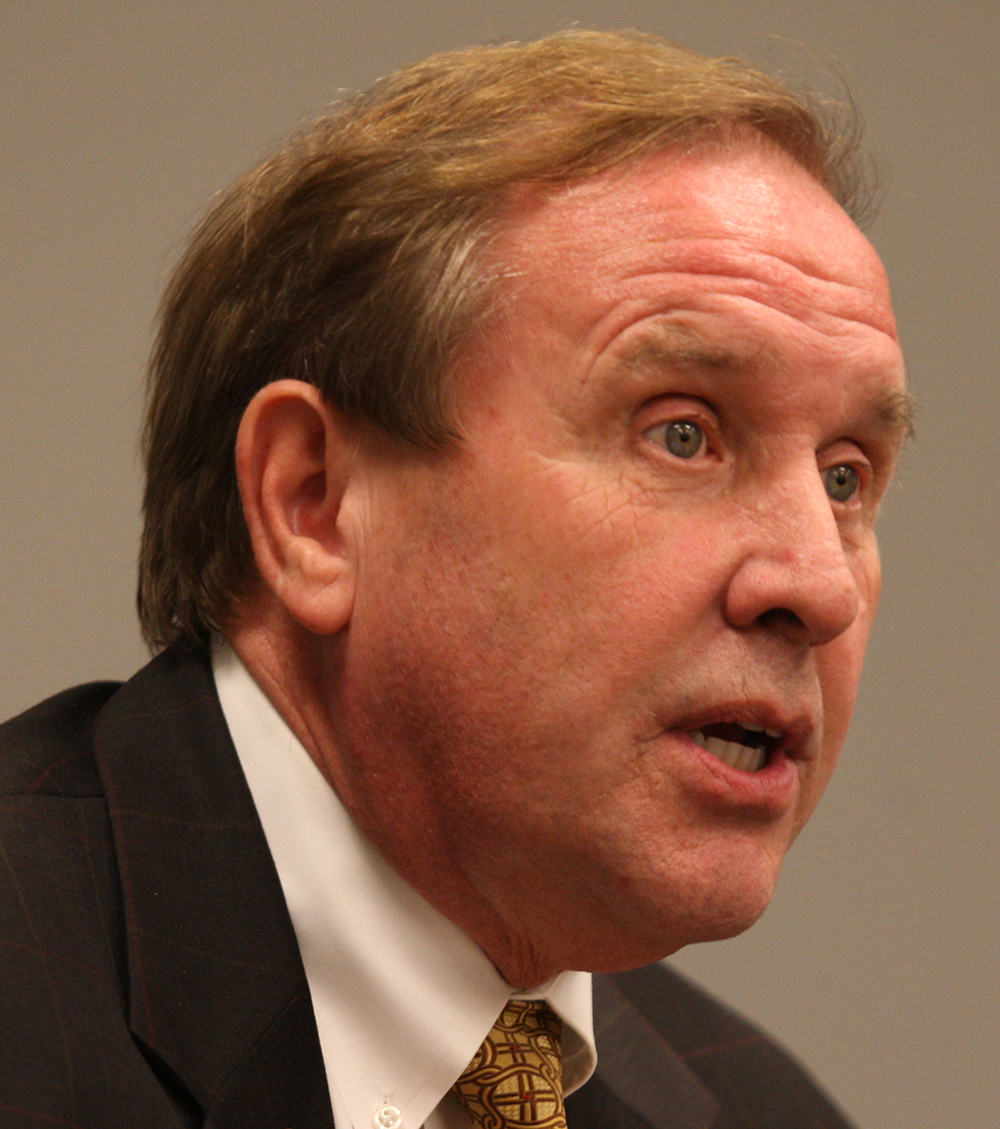About this article
This article was reported in a collaborative effort by the Chattanooga Times Free Press, the Associated Press, the Commercial Appeal of Memphis, the Knoxville News Sentinel and the Tennessean of Nashville. March 15-21 is national Sunshine Week, in which news organizations seek to examine and highlight issues related to transparency in government.
NASHVILLE - In a major departure from past practice, many Tennessee House committees these days routinely go first behind closed doors for unannounced "pre-meetings" where they discuss pending bills before they come up for public consideration in committees and subcommittees.
Lawmakers insist they are not taking actual votes on bills, but public advocates of open government as well as some legislators and lobbyists, question first vetting and discussing bills in secret.
Nashville Tea Party President Ben Cunningham said he had heard "here and there" about the pre-meetings, called "bill review" by some.
"I didn't know how extensively they were used, but obviously that is a complete betrayal of open government," Cunningham said. "Any kind of substantive deliberation should always be in public."
The Tennessee General Assembly says it does not come under the state's Open Meetings Act or Sunshine Law because one legislature cannot bind a future legislature. But lawmakers traditionally have sought to be open with a few notable exceptions, including House and Senate Finance Committees, especially during frenzied budget negotiations.
Senate Commerce Committee members traditionally held a "pre-committee" meeting, which, after it was exposed years ago, wound up being open to the public and news organizations.
But some lawmakers, staffers and lobbyists complain such meetings have become standard practice in the House after Republicans won firm control of the chamber in 2010.
At least ten of the House's 15 standing committees now hold the unannounced meetings, often in out-of-the-way offices. Each committee sets its own rules. Some allow non-committee members and/or lobbyists. Some don't.
Armed with a recently leaked schedule of various pre-meetings, reporters from the state's largest newspapers, including the Times Free Press, as well as The Associated Press, sought entry into several of the meetings on Monday and Tuesday.
Reporters representing the Times Free Press, The Commercial Appeal of Memphis and Knoxville News Sentinel were initially rebuffed by the chairman of the House Civil Justice Committee, Rep. John Lundberg, R-Bristol, when they asked to join the meeting in Republican House Speaker Beth Harwell's conference room.
"No," Lundberg said. Asked why, Lundberg said he "never had anyone come" before.
Judging by the schedule leaked to reporters, at least ten of the House's 15 standing committees are holding such meetings.
Asked about the meetings, Harwell told reporters from the aforementioned newspapers as well as the the Associated Press and the Tennessean of Nashville that "they're not having meetings as you think of meetings."
She cited the example of a Nashville Airport Authority measure in which she told all sides to "sit down and get something worked out. This [move] doesn't need to be in state statute."
"There are some members present there as they discuss and hash that out," Harwell said. "But no decision will be made, and no vote will be taken."
Regarding Lundberg's discouragement of reporters, reporters asked if the public should accept it on good faith that no votes are being taken.
"You'd have to ask Chairman Lundberg that," Harwell said. She noted that when she was a committee chairman she did not hold pre-meetings.
Later, at Harwell's prompting, Lundberg opened the meeting where a thorough, often-free wheeling discussion of various bills expected to come up in committee or subcommittee was underway.
One bill under discussion involved taking some discretion away from judges on a particular issue.
"By what authority do we tell that branch of government what they can and cannot do?" asked Rep. Mike Carter, R-Ooltewah, an attorney and former Hamilton County General Sessions Court judge.
No actual votes were taken. But each bill was thoroughly reviewed in a way not always done in subcommittees, which are now tasked with vetting, and committees.
Carter defended the practice.
"Here's what a pre-meeting is good for," Carter later said. "You saw today where I'd said, 'What are they trying to get to here?' We can't do that in a committee because it will delay the process for weeks. We'd be here all year."
Carter said that in a committee "you've seen me disagree with a bill that I understand. There's a difference. One is, OK, now I know all the facts and I'm going to tell all the world why I'm for or against it. The other is, what are we trying to fix?"
Lundberg later said no votes are ever taken.
"No, no, no, no, no. We can't take votes. But the neat part here it's very free-flowing as you saw. And in the committee, you're recognized and you can only ask some questions this way. It's just lots of perspective and everybody's throwing things out."
Lundberg said he doesn't allow lobbyists in the pre-meeting.
In the House Education Administration and Planning Committee Monday night, Chairman Harry Brooks, R-Knoxville, allowed reporters in with no questions. Also there was Ken Meyer, a former Republican lawmaker, who now heads lobbying efforts for K12 Inc., a for-profit school offering online services under contract with Union County schools.
On Tuesday, the House Business and Utilities Committee met with Chairman Pat Marsh, R-Shelybville, allowing reporters. Mid-way into the meeting, Rep. Ryan Williams, R-Cookeville, a non-committee member showed up.
"I didn't know y'all had this meeting," Williams told committee members.
In a letter last week to House Majority Leader Gerald McCormick, R-Chattanooga, in a tit-for-tat over each chamber's work ethic, Republican Senate Speaker Ron Ramsey alluded to the House practice.
"Our committees publicly debate each bill and do not meet in private before a meeting to discuss outcomes. And, most importantly, Senate committees conduct a roll call vote on all bills."


